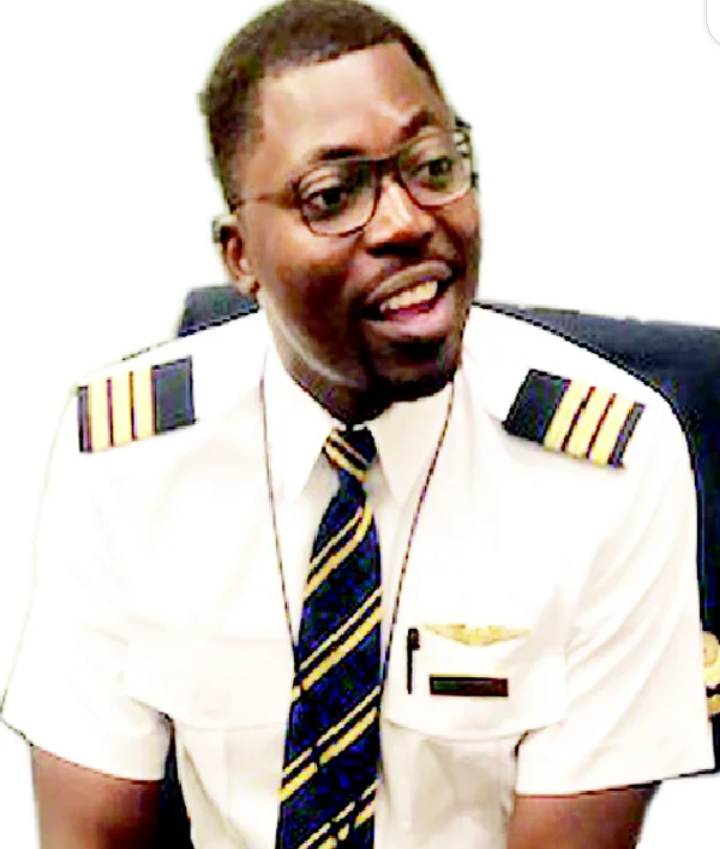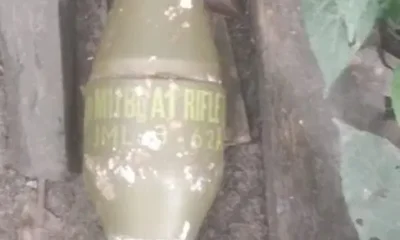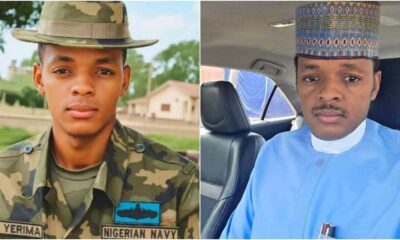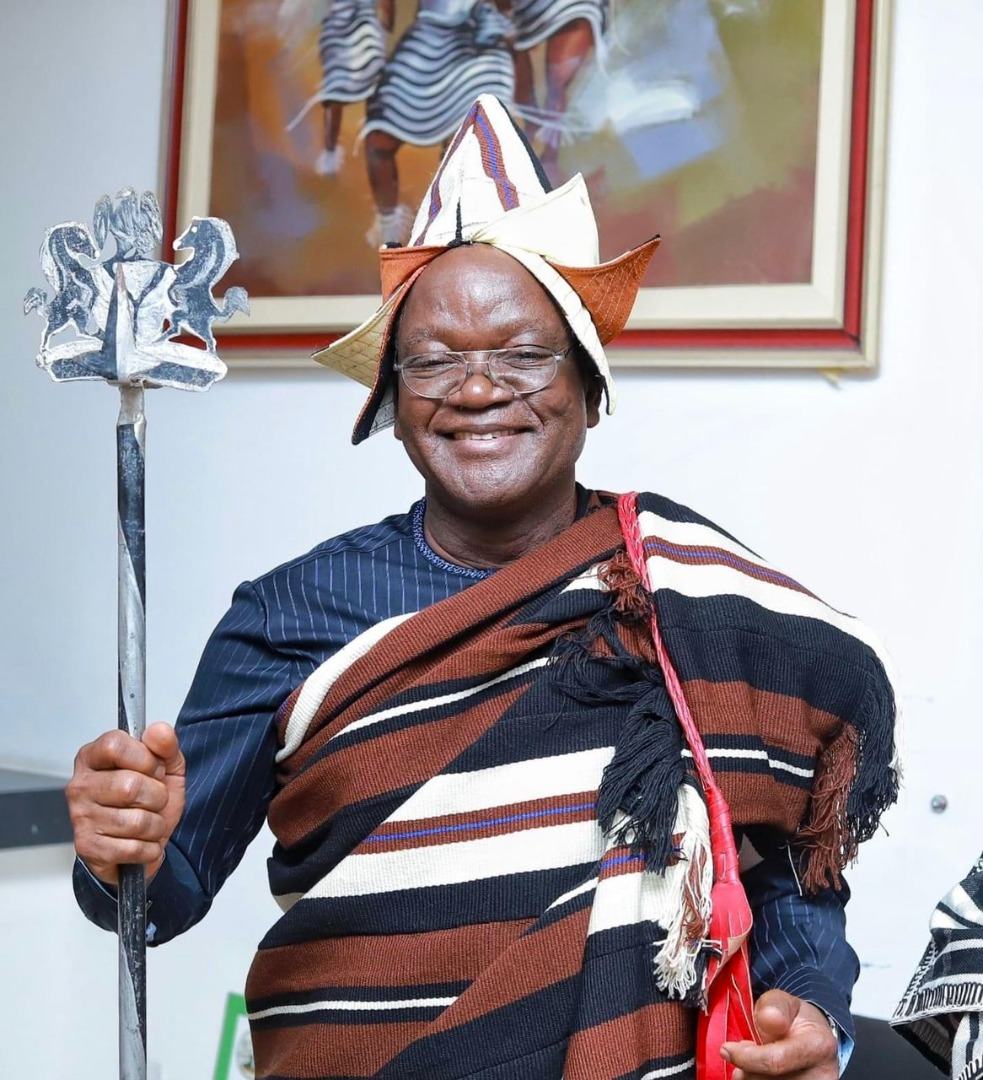Latest News
Ambrose Ojobo: Meet Idoma-born 30-yr-old Emirate pilot

As a child, Idoma-born Ambrose Ojobo dreamt of becoming a pilot. At 17, he achieved that dream and became one of Nigeria’s youngest pilots. Today, he is Nigeria’s only indigenous pilot on the Emirate Airline’s fleet. In this interview, he shares the inspiring story of how he braved the odds to achieve his dream.
Schneider Electric, NAPTIN conclude training for Electricians, Pursue Gender Inclusion
Share a little about your background
I’m from Benue state. We are 14 in my family. My elder brother is in Australia and the rest are in Nigeria in different fields. Growing up was interesting. My dad was committed to making sure we all thread our parts to the fullest. His dream was that whatever we wanted, he will do his best to make sure we achieve the best. I think everybody in my family leveraged on that.
At what age did you start flying aircraft?
I started flying in Nigerian College of Technology Zaria, Kaduna state at the age of 17. I did my whole initial training there. I’m 30 years old now. I joined Emirate two and half years ago and I have been flying Emirate’s Boeing 777, 300 ER since then. I have been to all the continents and it’s been lovely working here in Dubai.
What motivated you interest in flying planes?
It was more of being interested in automobiles, trains, and airplanes in general. As I grew much older, I think fate played a role as well. My father studied at Ahmadu Bello University in Zaria and it was his own dream as well that his son will be a pilot one day. Growing up, he sold the idea to me and asked; will you be interested in flying? I was like okay! Then I got enrolled into the standard pilot course 23 and I did different programs and since then, it’s been wonderful and I have not regretted it as well.
How did you get the Emirates job?
I applied online and got shortlisted for interview. After that, I went for the three days interview in Dubai. The interview also involved going through several assessments. After that, we did leadership and building exercise. One month to that, we did a cycomenitary analysis, then medical test and finally meeting with the HR team and flight operations. I was successful at the end of the three days.
How would you compare training in aviation school in Nigeria and other countries?
I will give you the word top-notch. That’s the reason why I am sitting here. That’s my root. I didn’t train anywhere else. I started my basic training in Nigeria and that is why I am privileged to be where I am today.
How was your first experience as a pilot like?
It was normal. The only difference was that I’m responsible for 150 passengers. I think that was the difference and the number keeps increasing. At the moment, Emirate aircraft takes about 445 people and there is this feeling that waoh! 445 people are behind me. It’s just that feeling that is incredible and exciting.
What are some the major challenging you have encountered as a pilot?
I will put it in parts. The first part is something happening in another airline and back in Nigeria, I’m limited, I can’t say anything about it. The second is turbulence. When we fly, we fly in air and the air moves. We move through the air and the air moves as well. As the wind blows, you feel it on your cheek and that is what is happening outside the aircraft, when we fly through it. So basically, when it blows, it blows in different directions and affects the aircraft which is a background to turbulence. Our part as pilots is to avoid it as much as we can. We go through several procedures to make sure we are safe throughout the flight.
What’s your favorite destination?
That is a tough question because the world is my home at the moment. I don’t have a favorite destination. I just enjoy every place I go because it got its own uniqueness and culture and something that just flows through your energy that you can’t experience in another place. So it’s difficult to really pinpoint a favorite destination. Before I go anywhere I just read up the background of where I’m going to. That helps as well because by the time you get there, you are just enjoying the energy and you are amazed at how different but the same we are in different places around the world.
How is it like working with people from all over the world?
Very exposing and it teaches you how to accommodate, in the sense that some one is saying something and you have to listen. And then in listening, you get to see his perspective and you find that we are both around the same issue. So it has improved my leadership skills that will be the emphasis on leadership because leadership is about taking one or two steps backwards and actually listen, and in listening you find out that the whole comes together and get the job done.
In the next 10 years where do you see yourself?
I hope to be a captain with Emirate airline. I hope to be a training captain as well and possibly into management.
Who is your role model?
That would be my uncle. He was in the Nigerian Air Force. He is retired now. He used to drop by our house with his uniform. I was always excited seeing him in his uniform and my parents encouraged me to be like him.
How would you compare technology infusion on the Emirate fleet?
Emirate airline is a company of its own and they got their own equipments. You went to engineering department and you saw the Boeing 777 and the 8 rating. Those are the equipments Emirate has. I’m trained to operate on those aircrafts, so when I’m relating it to previous experience, I think that is dragging me behind.
What is the technology like here in Emirate?
Technology is the major thing here, because of the span and globalization of Emirate network. Another major thing I have noticed here is the very huge and tremendous improvement in communication. The network is so big, there’s an aircraft in Australia and US, these are two ends of the world and there’s a network here in Dubai, being able to communicate with all these airplanes and manage the span of the network is what I find facinating and I think that wasn’t existing in the previous places I worked.
How would you compare the operating environment of Emirate with other airlines you have worked with?
Emirate operates 260 airplanes. So communication is the emphasis.
Training for example; if you take this guy and employ him, if he doesn’t know how to operate your own equipment,you put him through training especially using the full flight simulators. What I find interesting in technology especially artificial intelligence, or internet of things, is that if you put these pilots to full flight simulators, they get all the experience, handling, skills, attitude, training and finally you teach them properly and they are ready. I think that is one of the great leverages of technology.
IATA said some years back that by 2025, global aviation industry will require 17, 000 pilots annually, Do you think aviation industry can cope?
I’m on the operation aspect. Give me an aircraft, give me my equipment and I’m ready to fly. But my answer to that is that nothing is impossible. We leave it for policy makers to do what they know how to do best.
Have you ever had a turbulent flight?
On the job, we are prepared for almost any scenarios because that’s the emphasize on training. In the simulator which we have, we go through lots of training and lots of scenarios play continuously, now we are at the evidence based training.
(Credit: Vanguard)

























